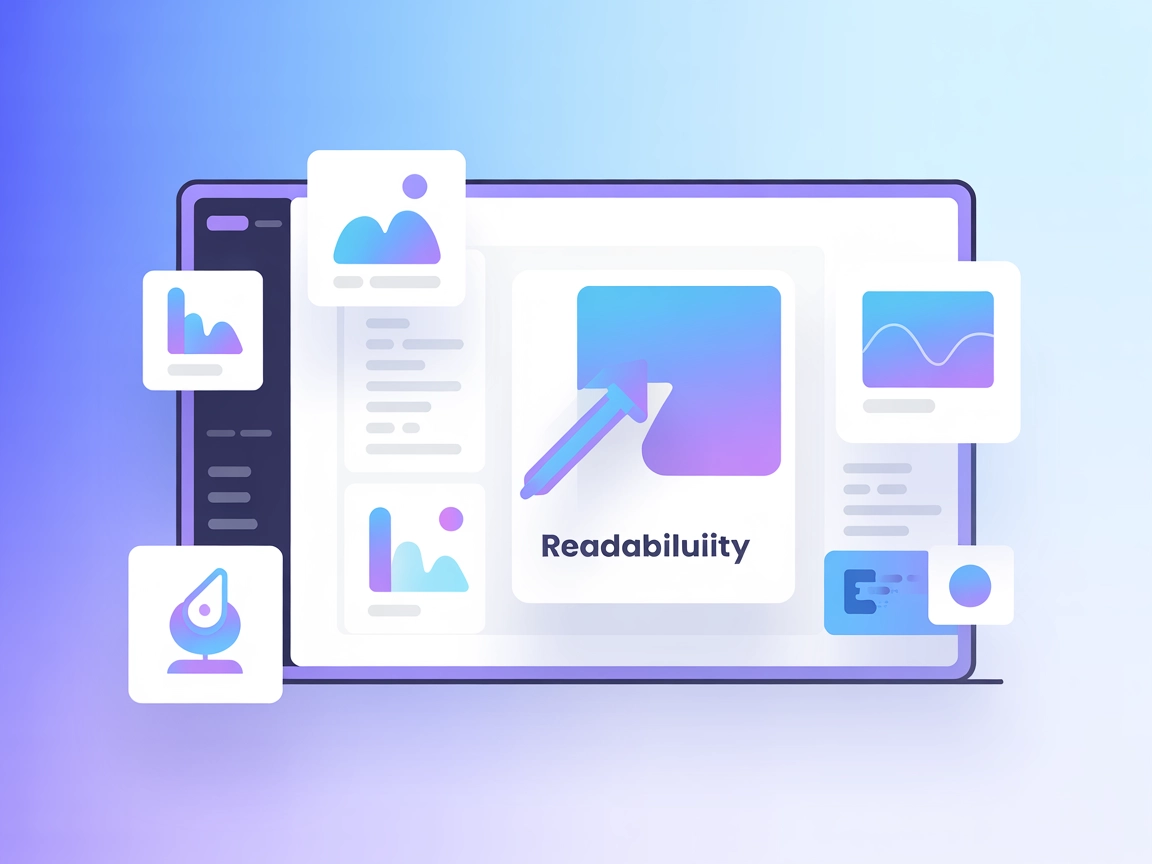
Webpage Content GAP Analysis
Discover how a Webpage Content GAP Analysis can boost your SEO by identifying missing elements in your content. Learn to enhance your webpage's ranking with act...

An SEO score is a numerical representation of how well a website complies with SEO best practices, evaluating technical aspects, content quality, user experience, and mobile responsiveness. Understanding and improving your SEO score is crucial for enhancing your website’s visibility on search engine results.
An SEO score quantifies the effectiveness of a website’s optimization for search engines like Google, Bing, and Yahoo. It assesses various elements that contribute to a site’s ability to rank higher in search results. These elements include:
By analyzing these components, an SEO score provides a comprehensive overview of a website’s strengths and areas for improvement in terms of SEO.
An SEO score is used by website owners, digital marketers, and SEO professionals to:
Site speed refers to how quickly web pages load. Faster-loading sites provide a better user experience and are favored by search engines.
Crawlability is the ease with which search engine bots can access and navigate a website. Indexability refers to the ability of search engines to add pages to their index.
A well-structured site makes it easier for search engines and users to find content.
High-quality, relevant content is essential for user engagement and ranking.
Keywords are terms users enter into search engines.
Meta tags provide information about a web page to search engines.
Links within your website improve navigation and spread link equity.
A user-friendly site keeps visitors engaged.
Search engines may use user engagement as a ranking signal.
An accessible site accommodates all users, including those with disabilities.
A responsive website adjusts its layout based on the device’s screen size.
Mobile users expect fast-loading pages.
Backlinks are links from other websites to yours.
A metric that predicts how well a site will rank.
Example:
A digital marketing agency conducts an SEO audit for a client. They use an SEO score to:
Use Case:
A website owner monitors their SEO score monthly to:
Example:
An e-commerce business compares its SEO score with competitors to:
Use Case:
A blogger notices a low SEO score due to poor mobile friendliness.
Artificial Intelligence (AI) and chatbots can influence and improve SEO scores by enhancing user experience and engagement.
Various tools can analyze your website and provide an SEO score, including:
Example: Using Google Lighthouse
Ctrl+Shift+I or Cmd+Option+I on Mac.While tools are efficient, conducting manual reviews can provide additional insights.
The concept of an “SEO Score” is integral to understanding how well a website is optimized for search engines. Although specific academic papers directly discussing “SEO Score” are scarce, related research can shed light on components and techniques relevant to SEO performance evaluation.
Learning for Single-Shot Confidence Calibration in Deep Neural Networks through Stochastic Inferences by Seonguk Seo et al. (2019) explores a framework for calibrating prediction accuracy and confidence in deep neural networks. This research is significant for SEO as it highlights methods for improving the reliability of algorithmic predictions, which can be applied to SEO scoring algorithms to enhance their accuracy and confidence in ranking estimations. Read more here .
NOVI: Chatbot System for University Novice with BERT and LLMs by Yoonji Nam et al. (2024) discusses the development of a chatbot system evaluated using various scoring metrics such as BLEU and METEOR scores. While not directly related to SEO, the evaluation metrics used in this research provide insights into how similar scoring systems might be applied to SEO to gauge content effectiveness and user engagement. Read more here .
Local M-estimation with Discontinuous Criterion for Dependent and Limited Observations by Myung Hwan Seo et al. (2016) examines asymptotic properties of local M-estimators. The techniques discussed for dealing with discontinuous criteria and dependent observations can be relevant for developing more robust SEO scoring models that handle varied web data inputs effectively. Read more here .
An SEO score is a metric that quantifies how well a website follows SEO best practices, evaluating aspects like technical setup, content quality, user experience, and mobile responsiveness. It helps website owners identify strengths and areas for improvement to achieve better search rankings.
You can check your SEO score using tools like Google Lighthouse, Ahrefs, SEMrush, and Siteimprove. These tools analyze your website and provide actionable insights to improve your SEO.
Key factors include technical SEO (site speed, crawlability), on-page SEO (content quality, keyword usage, meta tags), user experience (usability, engagement metrics, accessibility), mobile friendliness, and off-page SEO (backlink profile, domain authority).
A higher SEO score means your website is better optimized for search engines, which increases its visibility, attracts more organic traffic, and helps you stay ahead of competitors.
AI tools can optimize content, identify technical issues, and enhance user engagement. Chatbots improve UX by assisting visitors, reducing bounce rates, and providing valuable data for content improvement.
Boost your website’s SEO score with AI-powered tools and actionable insights. Start optimizing your site for higher rankings today.

Discover how a Webpage Content GAP Analysis can boost your SEO by identifying missing elements in your content. Learn to enhance your webpage's ranking with act...

Enhance your content with the Readability Evaluator with URL as Input Tool that checks metrics like Flesch-Kincaid and ARI with FlowHunt.

Discover the importance of Readability evaluator from text in assessing text complexity and ensuring content suitability for diverse audiences. Explore FlowHunt...
Cookie Consent
We use cookies to enhance your browsing experience and analyze our traffic. See our privacy policy.